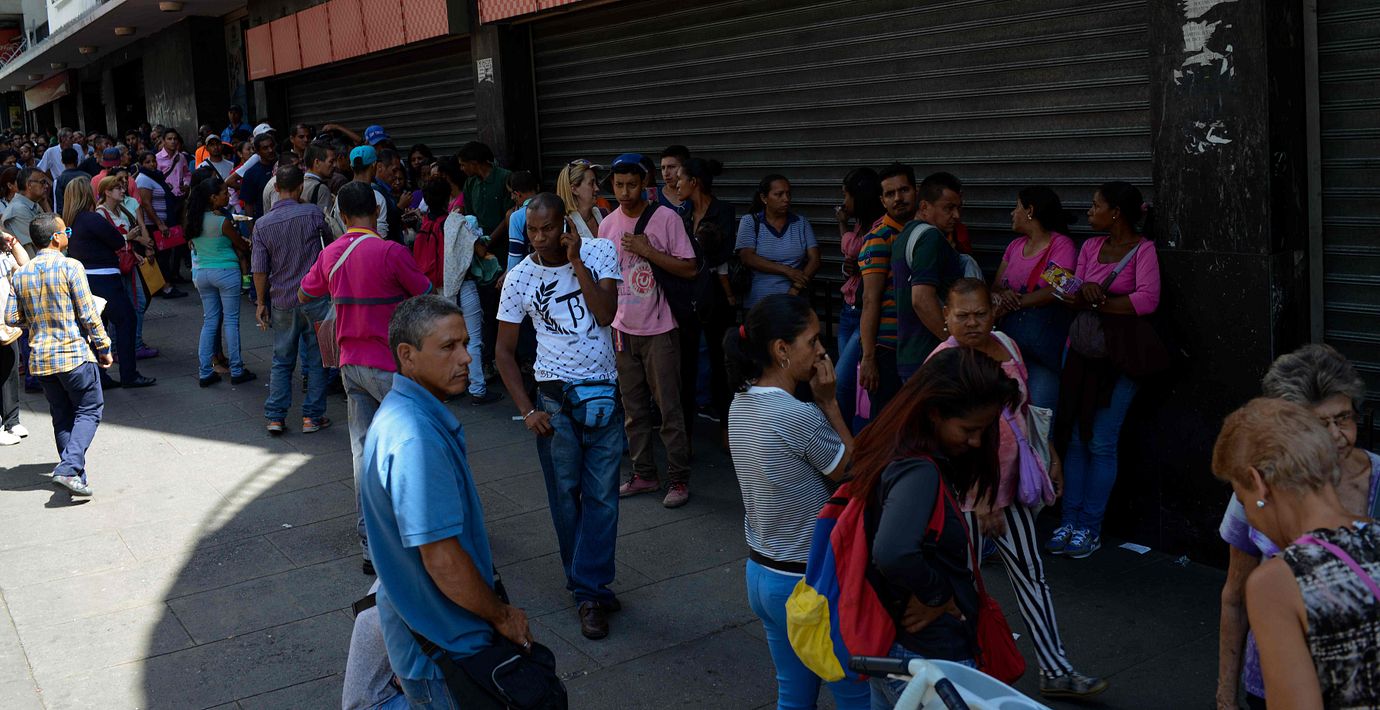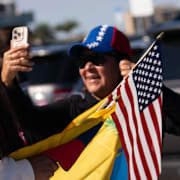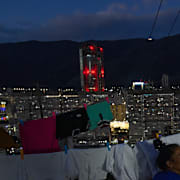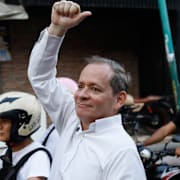
Venezuelas kris fördjupas – ställer in betalningar
Krisande Venezuela har nu missat två räntebetalningar på 200 miljoner dollar på sin statsskuld. Det uppger Standard & Poor’s som är först av kreditvärderingsinstituten med att konstatera att landet ställt in betalningar och därmed befinner sig i ”default”.
Även på längre sikt får Venezuela kreditbetyget SD, selective default, som innebär att landet väntas ställa in vissa betalningar.
”Sannolikheten är en på två att Venezuela ställer in betalningar någon gång inom de närmaste tre månaderna”, skriver S&P, enligt Financial Times.
bakgrund
Krisen i Venezuela
Wikipedia (en)
The crisis in Venezuela is the socioeconomic crisis that Venezuela has undergone since Hugo Chávez's tenure and which extended over the years into the current presidency of Nicolás Maduro. It is the worst economic crisis in Venezuela's history. During the year 2016, for example, consumer prices rose 800%, the economy contracted by 18.6%, and hunger escalated to the point that the "Venezuela's Living Conditions Survey" (ENCOVI) found nearly 75 percent of the population had lost an average of at least 8.7 kg (19.4 lb) in weight due to a lack of proper nutrition. The murder rate in 2015 was 90 per 100,000 people according to the Observatory of Venezuelan Violence (compared to 5 per 100,000 in the US).
The crisis has affected the average life of Venezuelans on various levels. The rise of unemployment resulted in the emergence of social movements aimed at both changing the economic and productive model, as well as questioning the political system and demanding a democratic renewal. Political corruption, scarcity of basic products, closure of companies, deterioration of productivity and competitiveness, and high dependence on oil are other problems that have also contributed to the worsening crisis.
Omni är politiskt obundna och oberoende. Vi strävar efter att ge fler perspektiv på nyheterna. Har du frågor eller synpunkter kring vår rapportering? Kontakta redaktionen



